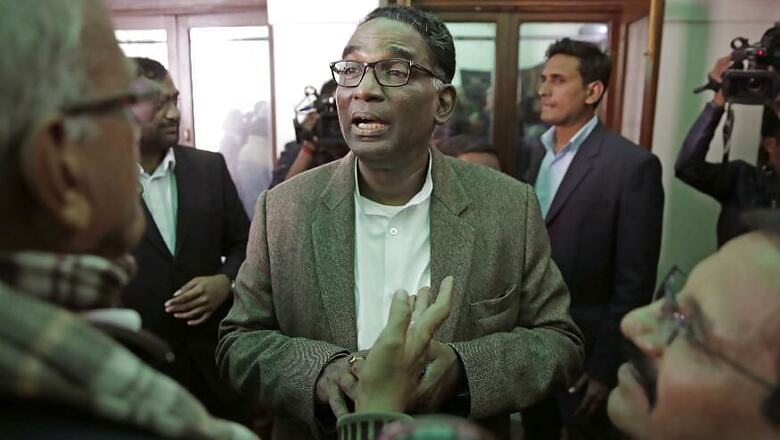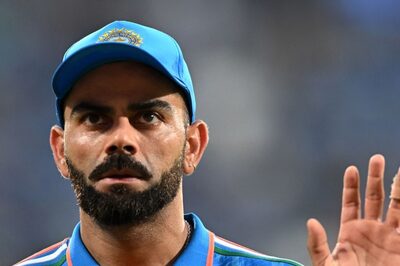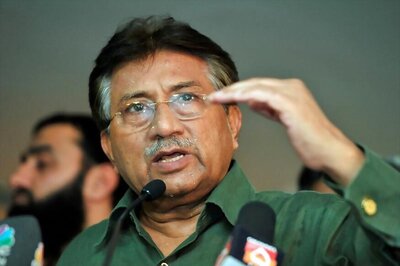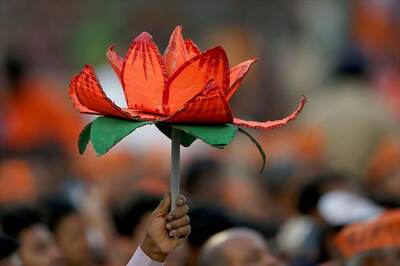
views
New Delhi: Justice J Chelameswar who courted a major controversy in January this year by voicing his disapproval against the current CJI and his way of functioning, said on Saturday that impeachment is not the solution to everything and there is a need to correct the system.
On Saturday, while speaking at a discussion organised by the Harvard Club of India, Justice Chelameswar also said that he would not take up any "government job after his retirement".
"Let me make one thing clear. Post retirement, I will not seek any government job posting," said the senior judge of the Supreme Court.
Justice Chelameswar, the senior-most judge after the CJI, said the January 12 press conference he held along with justices Ranjan Gogoi, M B Lokur and Kurian Joseph, was the result of "anguish" and "concern" as their deliberations with the CJI did not achieve the desired results on the issues raised by them regarding the functioning of the top court.
He also made it clear that "impeachment" was not the answer to all problems of the judiciary. The statement comes in the light of Congress leading a move to bring an impeachment motion against CJI Dipak Misra. The draft motion had raised grounds from the allegations of improper allocation of cases to specific benches and abuse of the “master of roster” theory.
No CJI has ever faced impeachment in the country.
"I don't know why the nation is obsessed about the impeachment business. Impeachment cannot be the answer to every problem. Looks like everybody wants to gain currency by using this term. Someone some days ago said that I should be impeached," said the SC judge.
Justice Chelameswar also said that there was nothing like "natural justice in appointment of judges" and that "judges appointing judges was a phenomenon of the Indian democracy since the last 70 years".
"Some kind of revisiting is required in the case of working of the SC. There are 50,000 pending cases and does all the cases have to be decided by the apex court? Multiple benches itself is a contributor of pendency," said Justice Chelameswar.
A few days ago, he had written a letter to the CJI saying that the "bonhomie between executive and judiciary sounds the death knell of democracy”. He also asked, "…what was the basis on which some sensitive cases were allotted to some benches? Are you able to sustain the faith of general public in the country?"
"The name of the judge mentioned was cleared by the collegium. CJI Thakur headed collegium first approved it and then again he was recommended by the CJI Khehar-led Collegium. If govt still finds some problem, communication has to be with the SC and not the CJ of the HC," said Justice Chelameswar.
The judge also raised questions on how a non-transparent system leads to suspicion among the public.
"Justice must not only be done, it also must appear to be done. If the process is not transparent then it leads to suspicion and suspicion always damages institutions," said Justice Chelameswar, when he was asked about the functioning of the Collegium system and added that he was in favour of “auditing” the Collegium system.
He also expressed hope that the controversial January 12 press conference against CJI Dipak Misra would not come in way of elevation of Justice Ranjan Gogoi, who was also part of the virtual revolt, as the next CJI.
"I only hope that it does not happen and if such a thing happens it will only prove what we said in the press conference was true," Justice Chelameswar said.
On being questioned about his dissenting verdict in the NJAC case where the majority ushered in the Collegium system and struck down NJAC in appointing the judges, Justice Chelameswar stated that he would not comment on the verdict but recollected a quote: "I don't believe judgments from the SC to be synonymous with Constitutional truth."




















Comments
0 comment